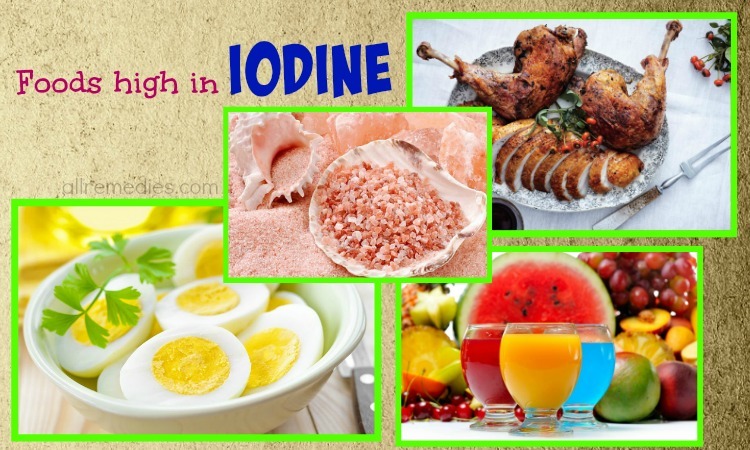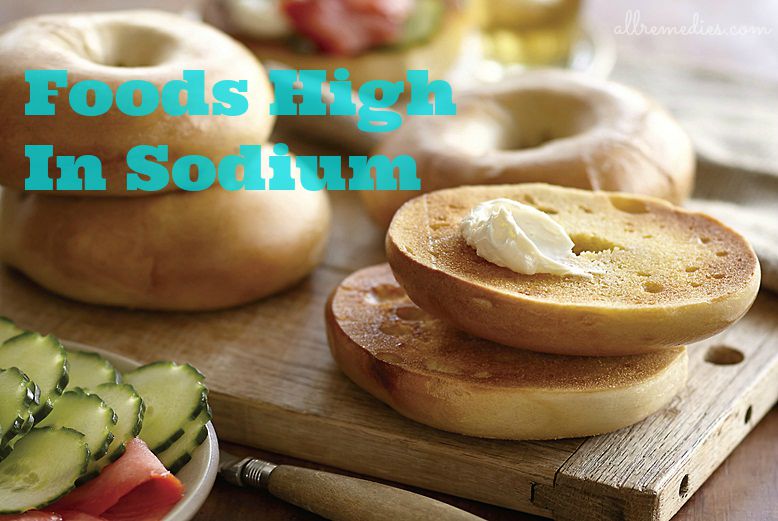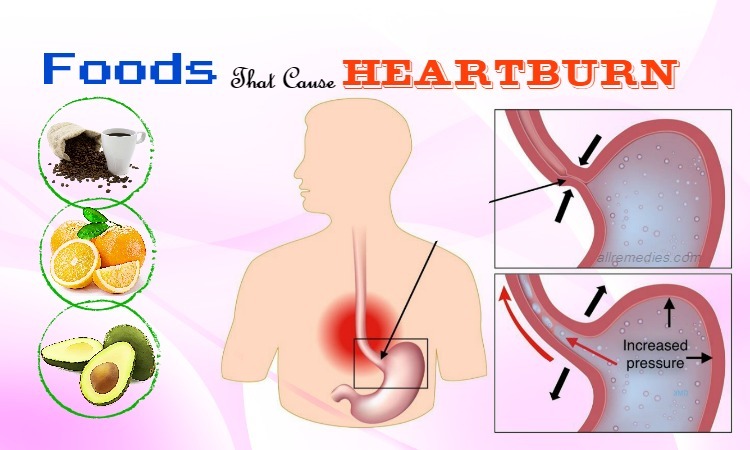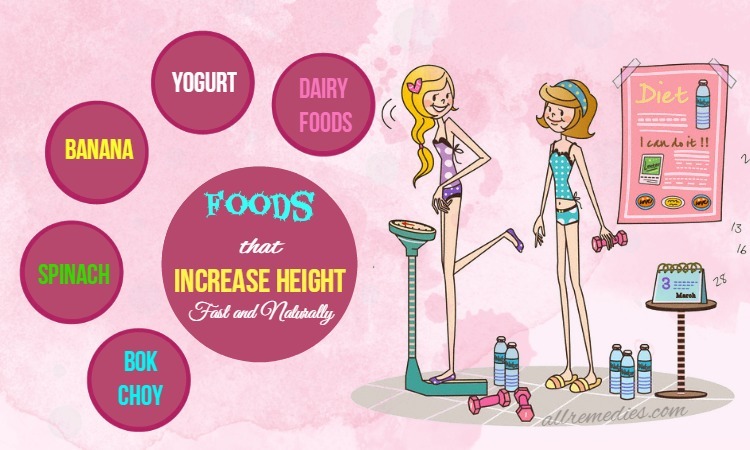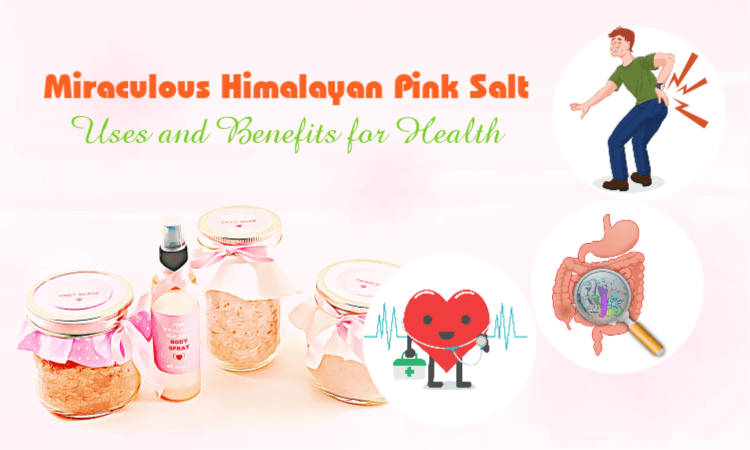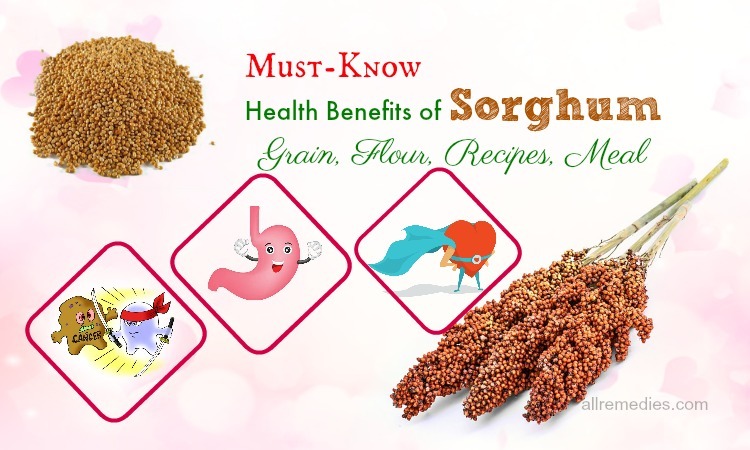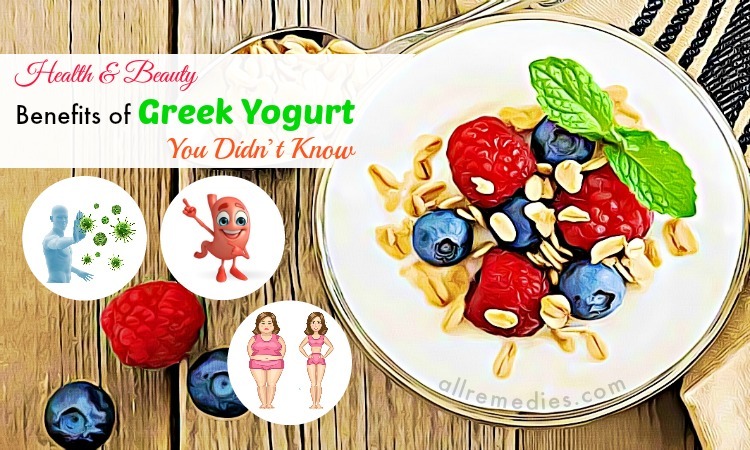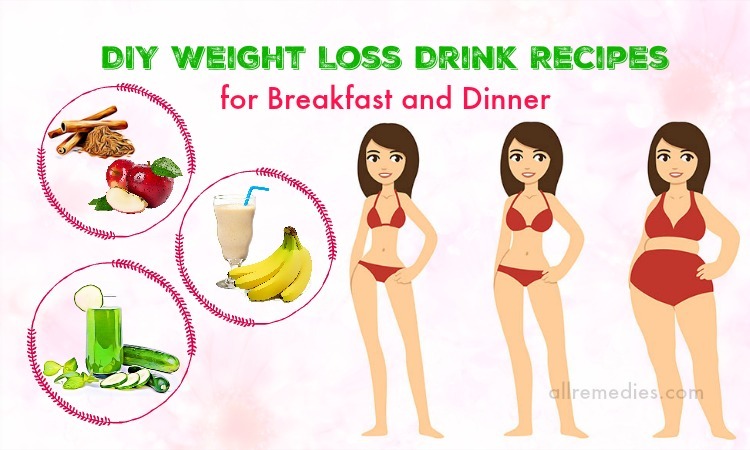Updated: 9/15/2019
CONTENTS
Iodine is a significant mineral and plays a vital role in human health. Iodine is a key component of the hormones produced in the thyroid gland [1]. These hormones are extremely essential for controlling energy production [2]. However, the amount of iodine you should take into the body needs considering seriously. Too little iodine or too much iodine in the thyroid gland may make the production of hormones slow down and gradually lead to hypothyroidism [3] [4]. The recommended daily allowance for iodine for a healthy person over the age of 14 is about 150 mcg, 90 mcg for the children at the age of 1 to 8, 120 mcg for the children at the age of 9 to 13, and 220 mcg for pregnant or breastfeeding women [5].
A diet lacking in iodine may lead to depression, anxiety, weight gain, slow metabolism, problems with concentration or memory, fatigue, lethargy, or even enlargement of the thyroid gland [6]. So you need to have a balanced diet with enough iodine for your body. AllRemedies will show you a list of foods high in iodine content. Let’s explore them!
The List Of Foods High In Iodine Content That The People With Hypothyroidism Should Know
1. Sea Vegetables
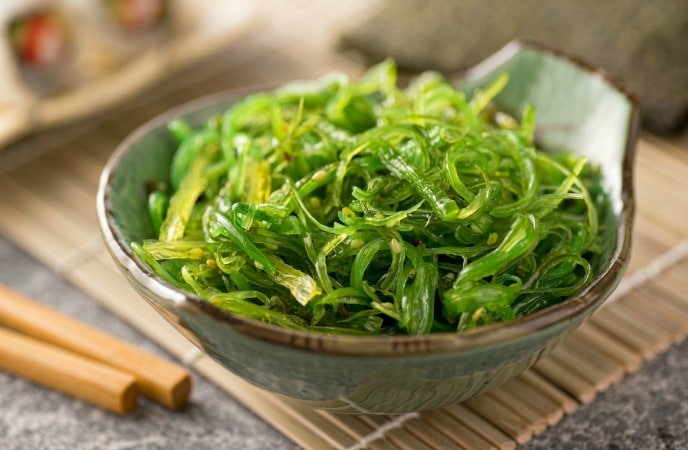
Researchers found out that sea vegetables contain a high content of iodine [7]. The amount of iodine depends on every type of seaweed, the area in which it grew and its preparation. The three most common sea vegetables products are nori, kombu and wakame [7]. You can consume dried seaweed, seaweed soup or add sea vegetables to your salads.
2. Cranberries
This fruit is often known to be rich in antioxidants and vitamin C. However, only a few people know that it is also a great source of iodine. It is estimated that cranberries may have up to 400 mcg of iodine for about 4 ounces or 267 % daily value with only 52 calories [8]. This fruit is also considered a superfood with a lot of vitamins and minerals such as manganese, fiber, copper, vitamin E, K, and pantothenic acid[9]. Some studies showed that eating cranberries may help protect the body against urinary tract infection[10] and cardiovascular diseases effectively[11]. Its polyphenols are useful for lowering the risk of getting periodontal disease[12]. Make sure to consume fresh or frozen cranberries without sugar coating.
3. Lobster
If you are experiencing the iodine deficiency, lobster may be a good choice for you[13]. In addition, lobster provides a great deal of vital vitamins and minerals for you. 85g of lobster meat is equivalent to 95 calories and delivers about 19g protein, with all essential amino acids. Lobster is also known for the best sources of vitamin B12[14]. Moreover, you don’t need to worry about weight gain when consuming lobster because it is significantly low in fat.
AllRemedies Partner Solutions

Keep Asking Questions Until You Get The Answer You Need!
The Medical Experts are all here to answer your questions online or with a phone call.
4. Cod
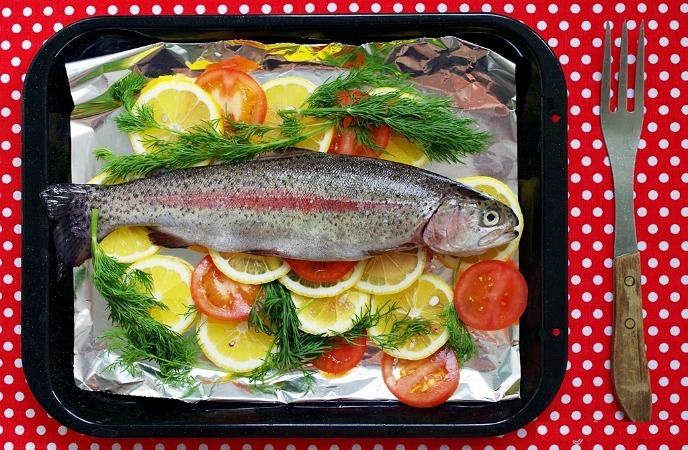
The meat of the cod is very delicious, low-calorie, and low-fat.
Cod is a saltwater fish that has a dense, white flesh and a mild taste. It is clearly shown that cod meat contains high levels of iodine[15]. Besides, a great source of vitamin E, potassium, magnesium, calcium, and protein found in cod is also very necessary for human health [16].
5. Organic Yogurt
It is proved that yogurt is one of the excellent foods high in iodine content[17]. One cup of plain yogurt may contain about 75 mcg of iodine. Yogurt is crammed with vitamins (vitamin A, C, D, E & K) and minerals (calcium, magnesium, potassium and sodium)[18]. Consuming yogurt every day may enhance your digestive system and improve your skin.
6. Organic Potatoes
Organic potatoes are described as common food rich in iodine. A medium-sized baked potato may contain about 60 mcg of iodine[19]. Potatoes have an abundance of vitamins and minerals such as vitamin C, vitamin B6, potassium, phosphorus, manganese, calcium, iron, magnesium, and zinc[20]. You can use potatoes to make healthy salads, creamy mashed potatoes or delicious baked French fries or also use it in soups.
7. Soy nuts
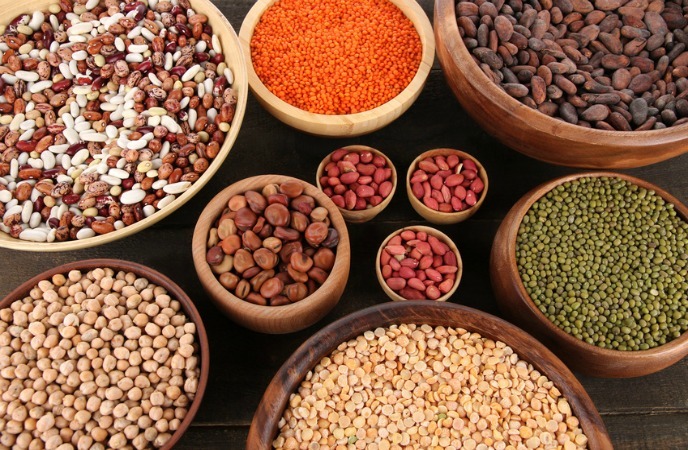
Soy nuts are made from soybeans. If you want to bake or roast these nuts, it is necessary to soak them in water for several hours. They contain high contents of dietary fiber, protein and iodine. A quarter cup of soy nuts may include 60 mcg iodine[17]. Soy products are naturally free of cholesterol and low in saturated fat. Instead, they contain polyunsaturated fat, which aid to decrease cholesterol level and enhance cardiovascular health[22].
8. Milk
Milk is one of the most popular beverages in the world, which provides a number of lipids, proteins, vitamins, and minerals[23]. Omega-3 fatty acids found in milk may lower the risk of diabetes and heart disease[24]. It is fully loaded with beneficial iodine[25]. There are plenty of products made from milk, cheese, yogurt and buttermilk (this is not great for iodine too).
9. Bread
Bread is one of the most common foods in the world and has been eaten for millennia. It is typically made from two ingredients that are flour and water. Studies indicate that bread has a high content of iodine, which brings people numerous health benefits[26] . Furthermore, eating whole grain bread may reduce the risk of getting cardiovascular diseases and cancer[27] (this is not a healthy option)
10. Fruit Cocktail
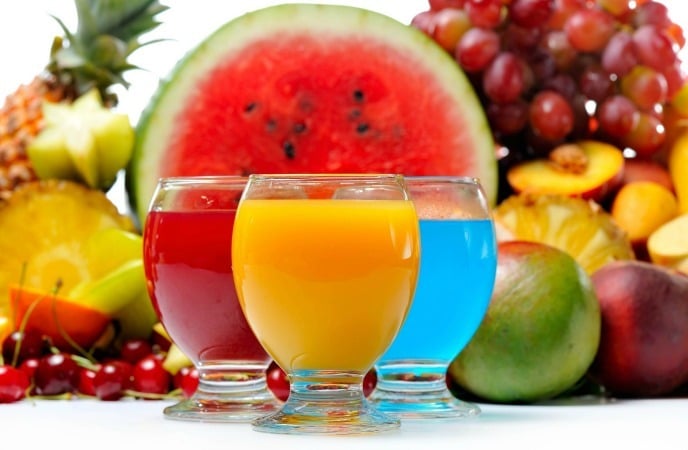
Fruit cocktail in heavy syrup and cans is also rich in iodine, about 42 mcg iodine for half of cup[17]. You can buy fruit cocktail in every supermarket or can make your cocktail at home. There are thousands of fruit cocktail recipes for you to try and get the most delicious one (this is very unhealthy).
11. Shrimp
All the food from the ocean is always an excellent source of iodine, including shrimp. Shrimp may provide you 35 mcg of iodine approximately 23 % of daily value and 84 calories for only a 3-ounce serving[17]. Plus, shrimp is high in some essential vitamins and minerals such as vitamin B12, phosphorus, copper, protein, selenium and zinc[16]. It can be combined with other foods to make delicious dishes for your meals.
12. Fish
Fish is a low-fat, high-quality protein. Fish is abundantly loaded with omega-3 fatty acids. These essential nutrients may ease depression, lower the risk of stroke, heart attack and sudden death. Fish also has a major source of calcium, phosphorus and important minerals[28]. Besides, for patients with iodine deficiency, fish may be a wonderful choice that should be added to their daily diet[29].
13. Baked Turkey Breast
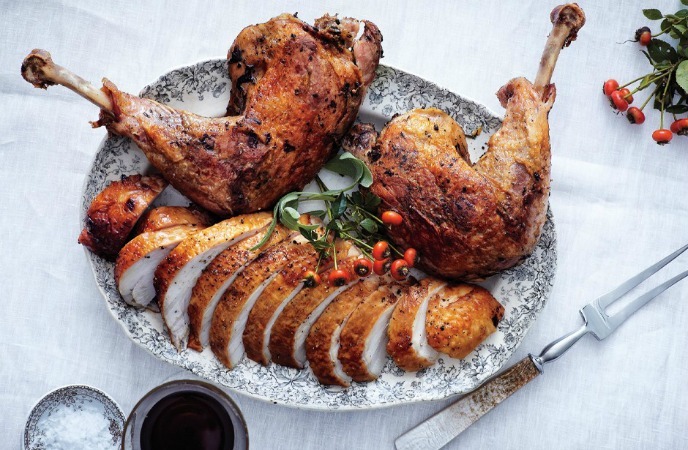
One of the types of meat can enter the list of foods high in iodine content is baked turkey breast[30]. Adding this food to your diet also helps provide B vitamins, phosphorus, and potassium that are very vital to a healthy and strong body. You can eat turkey meat without worrying about weight gain because it is low in fat and high in protein[31].
14. Organic Navy Beans
Beans, especially navy beans, have been known to contain a lot of iodine. It is found that only ½ cup of navy beans may contain up to 32 mcg of iodine or 23 % of the daily value[32]. Also, it is an amazing source of nutrients such as fiber, folate, manganese, copper, phosphorus, and vitamin B1, which play a vital role in human health [33]. Therefore, navy beans are regularly added to various cooking recipes, particularly vegetarian ones.
15. Chocolate Ice Cream
Chocolate ice cream may be one of the most favorite desserts in the world, especially for children. It contains a major source of iodine. It is estimated that a half cup of chocolate ice cream may hold up to 30 mcg of iodine that equal to 20 % of your daily value[17]. If your kids are diagnosed to suffer iodine deficiency, it is ideal to buy chocolate ice cream or make your home-made one.
16. Canned Tuna
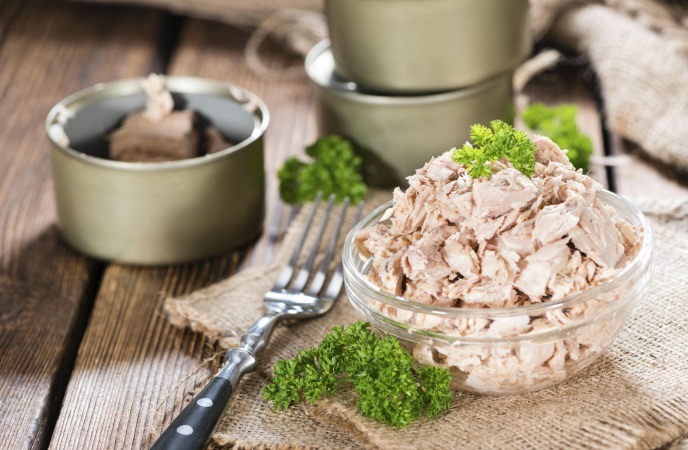
Canned tuna is known to have a high amount of iodine[15]. For each 3-ounce canned tuna, you may get 17 mcg of iodine or 11 % of your daily with 99 calories[17]. If you add tuna in your diet, you may get more advantages since it is also crammed with iron, protein, and vitamin E that are very necessary to build a healthy body.
17. Canned Corn
Canned corn is not only healthy and fully-functioning food but also iodine-rich food. You may get about 14 mcg of iodine or 9 % of the daily value with 67 calories for only ½ cup of canned corn [17]. Corn is extremely delicious, so it is much easier to combine with other healthy food for you to make tasty dishes for your friends and families. (its not good to eat canned veggies.. So you can eliminate this one).
18. Organic Strawberries
We all know that strawberries supplement a great source of vitamins and minerals, which are vitamin C, vitamin B6, copper, potassium and magnesium[34]. Nevertheless, a few people know that they have an important dietary source of iodine[35]. You can consume it by using them as a healthy juice or adding to dishes such as cakes and salad. Thanks to its antioxidant nutrients, they are proved to prevent and support for treating cardiovascular diseases[36] and diabetes [37].
19. Boiled Eggs
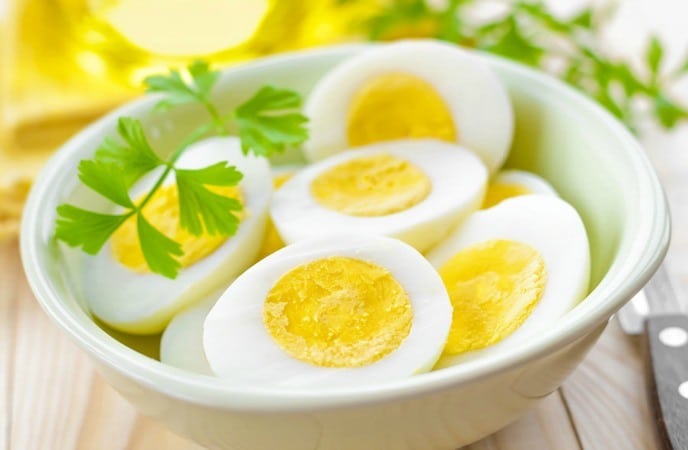
Hard-boiled eggs are considered healthy food that may help you supplement many nutrients such as antioxidants, calcium, zinc, protein, vitamin D and vitamin A[23]. Besides, it is also one of the foods high in iodine content[38]. It can be used with some leafy green and veggie-filled salad for a light and healthy meal.
20. Dried Prunes
Dried prunes are known to be rich in vitamins, minerals, and nutrients, for example, vitamin A, K, boron, and fiber [39]. This fruit is also an excellent source of iodine with 13 mcg of iodine or 9 % of the daily value for 5-prune serving [17].
21. Himalayan Pink Salt
The iodine content of Himalayan pink rock salt varies because it is a natural, unprocessed product that comes from the himalayas in india. Some salt may have more and some may have less than iodized table salt. But Himalayanl salt is all-natural and a better option to pep up your food.
Although iodine is good for all of us, especially for people with iodine deficiency, a diet high in iodine may be harmful to people with upcoming radioactive iodine therapy. They should follow a low-iodine diet and avoid all the foods high in iodine content to get the best result.
Finally, if you have any questions or ideas relating to this topic, you can leave your comment below. We will reply to you soon. You can visit our website to see more useful information about health.
References:
Reviewed By Registered Dietitian Nutritionist Rachelle Caves, RDN, CNSC, CPT [Link]

GET FREE ACCESS!
Lorem Ipsum has been the industry's standard dummy text ever since the 1500s, when an unknown printer took a galley of type and scrambled it to make a type specimen book. It has survived not only five centuries
Also on
JOIN THE CONVERSATION
